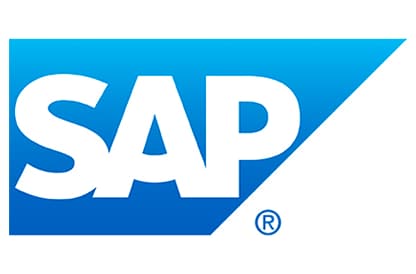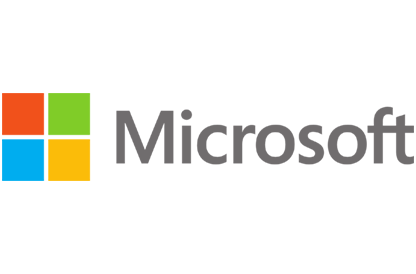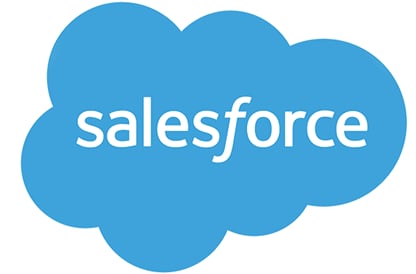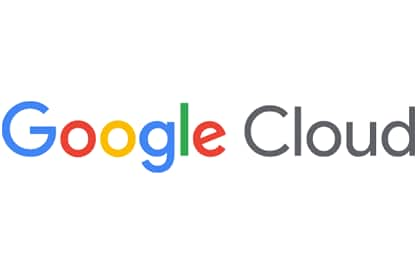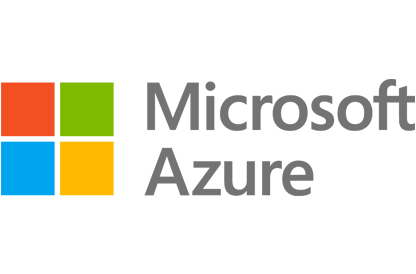Why OpenText
Why OpenText
Overview Why OpenText
OpenText brings decades of expertise to help you unlock data, connect people and processes, and fuel AI with trust
Manage and connect data
Unify data seamlessly across your enterprise to eliminate silos, improve collaboration, and reduce risks
AI-ready information
Get AI-ready and transform your data into structured, accessible, optimized information
Built-in security and compliance
Meet regulatory and compliance requirements and protect your information throughout its lifecycle
Empowering people
Overview Empowering people
OpenText helps people manage content, automate work, use AI, and collaborate to boost productivity
Customers
See how thousands of companies around the world are succeeding with innovative solutions from OpenText
Employees
Our people are our greatest asset; they are the life of the OpenText brand and values
Corporate Responsibility
Learn how we aspire to advance societal goals and accelerate positive change
Partners
Find a highly skilled OpenText partner with the right solution to enable digital transformation
How we compare
Content Management
Service Management
Deploy anywhere
Overview Deployment options
Explore scalable and flexible deployment options for global organizations of any size
Sovereign cloud
Local control. Global scale. Trusted AI
Private cloud
Unlock the value of the cloud while maintaining control and compliance
On-premises
Maintain full control of your data on your own infrastructure
Public cloud
Protect, scale, and use business information in your cloud of choice
AI leadership
Overview Aviator AI
See information in new ways
OpenText™ Aviator™ AI
AI that understands your business, your data, and your goals
OpenText™ MyAviator
Say hello to faster decisions. Your secure personal AI assistant is ready to get to work
OpenText™ Business Network Aviator™
Gain better insights with generative AI for supply chains
OpenText™ Content Aviator™
Power work with AI content management and an intelligent AI content assistant
OpenText™ Cybersecurity Aviator™
Improve your security posture with AI cybersecurity and agile threat detection
OpenText™ DevOps Aviator™
Enable faster app delivery, development, and automated software testing
OpenText™ Experience Aviator™
Elevate customer communications and experiences for customer success
OpenText™ Fax Aviator™
Turn every fax into instant action with AI
OpenText™ Service Management Aviator™
Empower users, service agents, and IT staff to find the answers they need
Aviator AI
Overview Aviator AI
See information in new ways
OpenText™ Aviator™ AI
AI that understands your business, your data, and your goals
OpenText™ MyAviator
Say hello to faster decisions. Your secure personal AI assistant is ready to get to work
OpenText™ Business Network Aviator™
Gain better insights with generative AI for supply chains
OpenText™ Content Aviator™
Power work with AI content management and an intelligent AI content assistant
OpenText™ Cybersecurity Aviator™
Improve your security posture with AI cybersecurity and agile threat detection
OpenText™ DevOps Aviator™
Enable faster app delivery, development, and automated software testing
OpenText™ Experience Aviator™
Elevate customer communications and experiences for customer success
OpenText™ Fax Aviator™
Turn every fax into instant action with AI
OpenText™ Service Management Aviator™
Empower users, service agents, and IT staff to find the answers they need
Analytics
Overview Analytics
Predict, act, and win with real-time analytics on a smarter data platform
Business Network
Overview Business Network
Connect once, reach anything with a secure B2B integration platform
Content
Overview Content
Reimagine knowledge with AI-ready content management solutions
OpenText™ Content Aviator™(AI)
Supercharge intelligent workspaces with AI to modernize work
Cybersecurity
Overview Cybersecurity
Integrated cybersecurity solutions for enterprise protection
OpenText Cybersecurity for SMBs & MSPs
Purpose built data protection and security solutions
OpenText™ Cybersecurity Aviator™(AI)
Reinvent threat hunting to improve security posture with the power of agile AI
DevOps
Overview DevOps
Ship better software—faster—with AI-driven DevOps automation, testing, and quality
Experience and Fax
Overview Experience and Fax
Reimagine conversations with unforgettable customer experiences
OpenText™ Experience Aviator™(AI)
Transform customer communications with private generative AI
OpenText™ Fax Aviator™(AI)
Turn faxes into workflow-ready data with AI
Legal Tech
Overview Legal Tech
Make smarter decisions with AI-powered legal software and services
OpenText™ eDiscovery
Accelerate eDiscovery with AI-driven speed and precision
OpenText™ Investigation
Optimize strategy with early case assessment and investigation tools
OpenText™ Core Insight
Get smarter eDiscovery with advanced TAR and automated document review
OpenText™ Core Legal Hold
Automate legal holds to eliminate risky and time-consuming processes
OpenText™ Legal Knowledge Management
Unlock knowledge and legal insights across content silos
Observability and Service Management
Overview Observability and Service Management
Get the clarity needed to cut the cost and complexity of IT operations
OpenText™ Service Management Aviator™(AI)
Redefine Tier 1 business support functions with self-service capabilities from private generative AI
APIs
Overview APIs
Build custom applications using proven OpenText Information Management technology
OpenText™ API Services
Build it your way with OpenText Cloud APIs that create the real-time information flows that enable custom applications and workflows
Device and Data Protection
Overview Device and Data Protection
Protect what matters, recover when it counts
Unified Endpoint Management Tools
- OpenText™ Endpoint Management
- OpenText™ ZENworks Suite
- OpenText™ ZENworks Service Desk
- OpenText™ ZENworks Configuration Management
- OpenText™ ZENworks Endpoint Security Management
- OpenText™ ZENworks Full Disk Encryption
- OpenText™ ZENworks Endpoint Software Patch Management
- OpenText™ ZENworks Asset Management
Solutions
Trusted Data & AI
Overview Trusted Data & AI
Secure information management meets trusted AI
OpenText AI Data Platform
A unified data framework to elevate data and AI trust
OpenText™ Aviator™ Studio
A place where you can build, deploy, and iterate on agents in your data's language
OpenText Discovery
A set of tools to help ingest data and automate metadata tagging to fuel AI
OpenText Data Compliance
A suite of services and APIs that make governance proactive and persistent
OpenText Aviator AI Services
Professional services experts who help you on your AI journey
Information Reimagined
Overview Information Reimagined
Get greater visibility and sharper insights from AI-driven information management. Ready to see how?
Knowledge reimagined
Transform daily work with enterprise content management powered by AI
Service Management reimagined
Cut the cost and complexity of IT service management, AIOps, and observability
Connections reimagined
AI-powered B2B integration for supply chain success
Conversations reimagined
Drive value, growth, and loyalty with connected customer experiences
Engineering reimagined
Agile development and software delivery? It only seems impossible
Security reimagined
Cybersecurity for the Enterprise
Decisions reimagined
Unlock insights with AI data analytics
Artificial Intelligence
Overview Aviator AI
See information in new ways
OpenText™ Aviator™ AI
AI that understands your business, your data, and your goals
OpenText™ MyAviator
Say hello to faster decisions. Your secure personal AI assistant is ready to get to work
OpenText™ Business Network Aviator™
Gain better insights with generative AI for supply chains
OpenText™ Content Aviator™
Power work with AI content management and an intelligent AI content assistant
OpenText™ Cybersecurity Aviator™
Improve your security posture with AI cybersecurity and agile threat detection
OpenText™ DevOps Aviator™
Enable faster app delivery, development, and automated software testing
OpenText™ Experience Aviator™
Elevate customer communications and experiences for customer success
OpenText™ Fax Aviator™
Turn every fax into instant action with AI
OpenText™ Service Management Aviator™
Empower users, service agents, and IT staff to find the answers they need
Industry
Overview Industry solutions
Improve efficiency, security, and customer satisfaction with OpenText
Energy and resources
Transform energy and resources operations with cloud, cybersecurity, and AI
Financial services
Boost customer experience, compliance, and efficiency with AI
Government
Reimagine your mission with government-secure information management
Healthcare and life sciences
Improve care delivery and patient engagement with AI-powered solutions
Legal
Modernize legal teams with automated, AI-powered legal tech solutions
Manufacturing
Modernize manufacturing operations and logistics to reduce costs and ensure compliance
Retail and consumer goods
Enhance consumer engagement with omnichannel retail solutions and AI
Enterprise Application
Overview Solutions for Enterprise Applications
Run processes faster and with less risk
Services
Services
Overview Services
Achieve digital transformation with guidance from certified experts
Professional Services
Modernize your information management with certified experts
Customer Success Services
Meet business goals with expert guidance, managed services, and more
Support Services
Turn support into your strategic advantage
Managed Services
Free up your internal teams with expert IT service management
Learning Services
Discover training options to help users of all skill levels effectively adopt and use OpenText products
Professional Services
Overview Professional Services
Modernize your information management with certified experts
Customer Success Services
Overview Customer Success Services
Meet business goals with expert guidance, managed services, and more
Support Services
Overview Support Services
Turn support into your strategic advantage
Managed Services
Overview Managed Services
Free up your internal teams with expert IT service management
Learning Services
Overview Learning Services
Discover training options to help users of all skill levels effectively adopt and use OpenText products
Partners
Find a Partner
Overview Find a partner
Find a highly skilled OpenText partner with the right solution to enable digital transformation
Cloud Partners
Overview Cloud Partners
OpenText partners with leading cloud infrastructure providers to offer the flexibility to run OpenText solutions anywhere
Enterprise Application Partners
Overview Enterprise Application Partners
OpenText partners with top enterprise app providers to unlock unstructured content for better business insights
Partner Solutions
Overview Partner Solutions
Discover flexible and innovative offerings designed to add value to OpenText solutions
Resources for Partners
Overview Resources for Partners
Discover the resources available to support and grow Partner capabilities
Support
Overview Customer Support
Get expert product and service support to accelerate issue resolution and keep business flows running efficiently
Resources
Overview Resources
Explore detailed services and consulting presentations, briefs, documentation and other resources
Choose your region:
Europe, Middle East and Africa
Asia–Pacific
 Sauter Group
Sauter Group
OES and ZENworks support 50% cost saving through IT consolidation and process automation

Outcomes
- 50% cost saving through consolidation and process automation
- Reduced license costs through use of open source project management solution
- Increased system reliability and ease-of-use
- IT consolidation achieved without business interruption
Challenge
Consolidate two IT operations to provide a better service to users and save costs through central network and administration management.
Historically, Sauter was run autonomously, and subsidiaries made their own IT decisions. As a result, Sauter’s headquarters in Basel adopted a Microsoft infrastructure, while the German IT operation, based in Freiburg, has a long history with OpenText™ Open Enterprise Server (OES). Mr Thomas Bitzenhofer, Head of Corporate IT for Sauter, explains the challenge associated with this: “Users needed access to applications on both infrastructure stacks. Our engineers use complex building control software and access was arranged via VPN, using different credentials. We needed a more efficient and smooth solution for this. The company also realized that centralizing our IT operation would be much more cost effective.”
Sauter decided to merge its IT operations to provide seamless integration to all key applications, save IT resources, and create an environment that could be centrally managed.
Leveraging Micro Focus (now OpenText™), we were able to halve our network and system administration resources and a small team of just five people now manage 2,400 users and workstations, in over 100 locations.
Details
Solution
Mr Bitzenhofer and the team examined both IT environments to decide on the new standard. From a hardware perspective, they felt the Linux OES servers are leaner and easier to administer than Windows servers. NSS rights assignment is more granular and simpler within OES than the complex Windows rights assignment. In addition, OES provides print and file services that are regarded as superior to the Windows or open source alternatives.
Mr Bitzenhofer comments: “Micro Focus (now OpenText™) has a proven process with OES and Domain Services for Windows (DSfW) as the foundation to connect eDirectory™ with Active Directory (AD). DSfW is designed to leverage an already established eDirectory environment and authenticate new applications against it. We engaged Micro Focus (now OpenText™) Professional Services to develop a DSfW concept that integrates the separate systems while achieving our productivity goals. Leveraging this, any application that requires AD connection is integrated and can be transparently accessed by eDirectory users.”
This successful collaboration between Sauter and OpenText™ Professional Services enables users to connect to their required resources, regardless of source system. 2,400 users and workstations in over 100 locations are now centrally managed from Freiburg, Germany.
Although the move was entirely transparent to users on both technology stacks, the Microsoft users soon noticed additional features that are included in OES, like the convenience of OpenText™ iPrint. iPrint is available for any client and manages over 500 Sauter printers cleanly and reliably. Through a slim IPP client, even Sauter visitors can use iPrint without AD or NetIQ eDirectory by OpenText™ credentials.
In addition, OpenText™ Filr replaced Seafile, an open source file system. Filr provides mobile support and full AD integration for a consistent, secure, accessible experience, whether files are stored and shared from the Microsoft or OES environment.
To encourage team collaboration, Sauter used Microsoft Project. However, in the new consolidated infrastructure, open source products can operate seamlessly on the OES server. The organization now uses OpenProject, an open source project management system. This has significantly reduced license costs and, unlike Microsoft Project, OpenProject does not require a SharePoint server.
For central management of this hybrid IT infrastructure, Sauter uses ZENworks Configuration Management (ZCM) and ZENworks Patch Management. “In the Microsoft environment we had separate configuration and patch servers, but ZENworks resides on one server and gives us an integrated solution to manage all our Windows clients and servers, Linux servers, and mobile devices. We use ZENworks to configure and patch Linux servers, deploy software to our Windows 10 clients, patch any 3rd party applications, such as Adobe, and we’ve started a project in one of our divisions to manage Android and Apple mobile devices through ZENworks Mobile Management.”
Results
Process automation and IT consolidation have greatly benefited Sauter, as Mr Bitzenhofer explains: “Leveraging Micro Focus (now OpenText™), we were able to halve our network and system administration resources and a small team of just five people now manage 2,400 users and workstations, in over 100 locations. Apart from the obvious 50 percent cost saving this has delivered, the system is so much more transparent, easier to work with, and more reliable.”
He concludes: “Our users benefit from additional features and the seamless integration between both IT environments. Our IT teams enjoy the automated and standardized approach to software and patch deployment. The collaboration between Micro Focus (now OpenText™) and Sauter has saved IT resources while providing central access to key services.”
We engaged Micro Focus (now OpenText™) Professional Services to develop a DSfW concept that integrates the separate systems while achieving our productivity goals. Leveraging this, any application that requires AD connection is integrated and can be transparently accessed by eDirectory users.
About Sauter Group

SAUTER Group provides products, expertise, and solutions for building management and room automation, covering the entire building life cycle. Following significant growth in recent years it now employs 2,400 people worldwide with a turnover of approx. €400 million, making Sauter one of the leading providers in the building automation industry.
